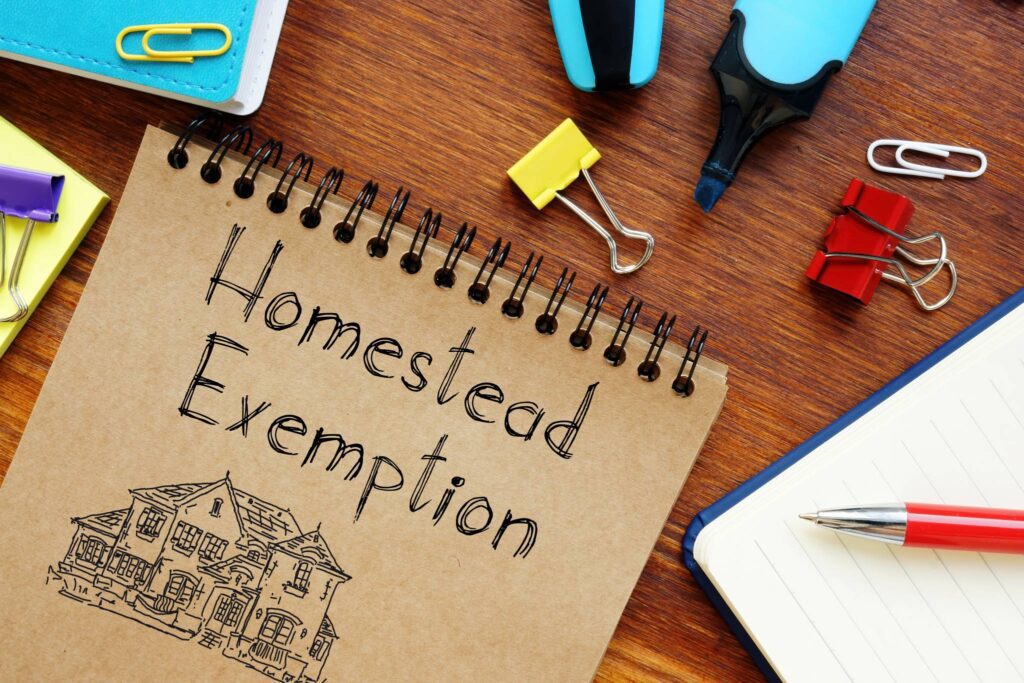Unlocking Savings with Florida’s Homestead Exemption
Homeownership is often viewed as a pivotal achievement—a chance to create a stable and nurturing environment. While it may come with significant costs, owning a home is typically more financially sound than renting. One powerful tool that can help lessen the financial burden of homeownership in Florida is the homestead exemption.
What Is a Homestead Exemption?
The homestead exemption is a legal provision aimed at protecting homeowners from high property taxes, as well as safeguarding their homes from creditors and unforeseen circumstances. This exemption can substantially reduce the assessed value of a home when calculating property taxes. Laws governing homestead exemptions vary by state, and in Florida, they are established through state statutes and the state constitution.
Benefits for Homeowners
A homestead exemption reduces the taxable value of your property, consequently lowering your annual property tax bill. This exemption can be based on a specific dollar amount or a percentage of your home’s value. For Florida homeowners:
- Reduced Property Taxes: The exemption amount is excluded from the property value when determining tax liabilities.
- Financial Protection: Homeowners can shield their properties from creditor claims and certain tax increases.
Calculation Example
To illustrate how the exemption works:
- Home Value: $200,000
- Homestead Exemption Percentage: 50% (a common scenario)
- Exemption Amount: $100,000
- Taxable Value: $100,000 (remaining value after exemption)
This means taxes are calculated only on $100,000 of the home’s value.
Homestead Exemption Breakdown in Florida
In Florida, homeowners can deduct up to $50,000 from their assessed property value. Here’s how it typically breaks down:
- $25,000 exemption on the first $50,000 (applicable to all taxes).
- Additional $25,000 exemption for values between $50,000 and $75,000 (excluding school taxes).
Eligibility Requirements
Eligibility for the homestead exemption in Florida is straightforward:
- Your home must be your permanent residence.
- You must own the home as of January 1 of the current tax year.
- Seasonal residents or part-time owners will not qualify.
If you purchase a home after January 1, you will need to wait until the following year to apply.
Filing Process
No annual re-application is required if you maintain the primary residency, but changes in ownership or residency status require notification to the state to avoid penalties.
How to Apply for a Homestead Exemption:
- You can file via:
- E-File
- In-person
- Fax
Required Documentation
When applying for a homestead exemption in Florida, you will need:
- A Florida driver’s license or ID
- Proof of residence (vehicle registration, utility bill)
- Florida voter’s ID (if applicable)
- Immigration documents (for non-U.S. citizens)
Important Deadlines
The filing deadline for a homestead exemption is March 1 of each tax year. If necessary, you may file through March 2 if March 1 falls on a Sunday.
Additional Benefits of Homestead Exemption
- Property Tax Caps: The Save Our Homes (SOH) program limits annual tax increases to 3% or the rate of inflation, whichever is lower.
- Portability: Homeowners can transfer their homestead exemption benefits (up to $500,000) to a new property if they move, provided they file for the exemption on their new home within three years.
Specialized Homestead Exemptions
Florida offers additional exemptions for specific groups:
- Elderly: Up to an additional $50,000 for homeowners 65 and older.
- Disabled Individuals: Exemptions range from $500 to full tax exemptions depending on disability status.
- Surviving Spouses: A $500 exemption for widows and widowers (not applicable upon remarriage).
- First Responders: Specific benefits for disabled first responders and veterans.
Homestead Exemption Limitations
- The exemption is not transferable; it belongs to the homeowner who initially applied for it.
- Non-homesteaded properties like vacation homes and commercial properties do not qualify for the SOH cap.
What If the Previous Homeowner Had an Exemption?
Should a home change ownership, the new owner must apply for a new homestead exemption, as the previous exemption does not carry over.
Conclusion
Utilizing the Florida homestead exemption is crucial for homeowners looking to minimize their tax burden and protect their assets. Whether you’re a new homeowner or have been in your property for years, understanding and applying for your homestead exemption can lead to significant financial benefits.
For more detailed information and guidance, consider visiting the Florida Department of Revenue or contacting a local real estate expert. With the proper steps, you can maximize your savings and enjoy the full benefits of homeownership.


